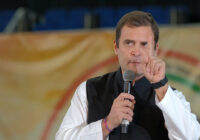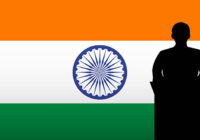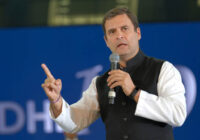This is the end of election season in India. Parties have announced many schemes. Although the ruling Bharatiya Janata Party (BJP) is projected to win, the results may not be a foregone conclusion. To win public support, the Indian National Congress, the opposition party, has promised Nyuntam Aay Yojana (NYAY), a minimum-income-guarantee program.
This proclamation raises a series of questions. What are the probable ramifications of this scheme? What will be the future of other existing programs like the food security system and agriculture subsidies? What will be its impact on small industries and rural and micro businesses? What are its implications for farming and agriculture? Will it result in the final victory over poverty as claimed?
POVERTY AND SCHEMES
Poverty as a term has a wide scope for interpretation. Is it to be defined by calorific intake or minimum wage or some other standard? Also, it is easier to propose a solution to poverty than eradicate it. Without addressing the root causes of poverty, transferring money to the bank accounts of the poor can badly backfire. NYAY is presented as “the final assault on poverty.” Rahul Gandhi, the Congress party’s president, has called it a “surgical strike” on poverty, a reference to Prime Minister Narendra’s Modi’s military operations against Pakistan.
NYAY would transfer 72,000 rupees ($1,030) to bank accounts of about 50 million households. Although NYAY promises cash transfers to the poor, it fails to examine the causes of poverty in India. In most cases, poverty stems from a lack of opportunities. Therefore, the challenge before policymakers is to create opportunities for the poor that lead to jobs and incomes.
NYAY’s cash transfers might not be the best answer. For many, they might lower the motivation to work and act as a disincentive for them to join the labor market. Labor intensive sectors of the economy like agriculture, textiles, handicrafts, pottery, fish processing and the coir industry might suffer if labor becomes scarce and wages go up. When wages go up, small and medium-sized enterprises (SMEs) that operate on thin margins might go bankrupt. This could further decrease job opportunities in a country with high unemployment and even higher underemployment.
Labor shortage and higher wages can also lead to greater mechanization in the agriculture sector. This would lower the number of jobs as well. Similarly, jobs would dry up in the informal economy. Small-scale manufacturing, which is already in deep trouble due to low productivity and higher wages, could collapse. In a nutshell, NYAY could alter the existing labor market equilibrium in a significant manner.
WORK IS WORSHIP
Human beings have an inherent need to be active. Meaningful work is essential for any healthy society. If money comes without any productive contribution, the social pressure to work and the economy’s entrepreneurial energy would decline.
In the short run, NYAY will kill off small enterprises by making it uneconomic for them to continue. Once that happens, imports would flood the Indian market and the balance of payments would decline. In particular, the manufacturing sector, especially the labor-intensive units that make traditional items such as handicrafts, will decline dramatically. There is a precedent to NYAY. The Mahatma Gandhi National Rural Employment Guarantee Act (MNREGA) implemented by the Indian National Congress raised wages and damaged SMEs, handicrafts and farming activities.
It is ironic that MNREGA is named after Mahatma Gandhi. He believed that engaging in work and productive activity is a source of self-expression, fulfillment and creativity. Gandhi believed that god created man to work for his food and that man must earn his daily bread by the sweat of his own brow. The right to work and earn one’s livelihood without being dependent on any force or power is indeed the real freedom that Gandhi dreamt of for independent India.
Therefore, the next government must create work for the poor instead of doling out cash to them. That will not only be in the spirit of freedom and Gandhi, but also lead to a sustainable and long-term solution to poverty.
The views expressed in this article are the author’s own and do not necessarily reflect Fair Observer’s editorial policy.
Support Fair Observer
We rely on your support for our independence, diversity and quality.
For more than 10 years, Fair Observer has been free, fair and independent. No billionaire owns us, no advertisers control us. We are a reader-supported nonprofit. Unlike many other publications, we keep our content free for readers regardless of where they live or whether they can afford to pay. We have no paywalls and no ads.
In the post-truth era of fake news, echo chambers and filter bubbles, we publish a plurality of perspectives from around the world. Anyone can publish with us, but everyone goes through a rigorous editorial process. So, you get fact-checked, well-reasoned content instead of noise.
We publish 2,500+ voices from 90+ countries. We also conduct education and training programs
on subjects ranging from digital media and journalism to writing and critical thinking. This
doesn’t come cheap. Servers, editors, trainers and web developers cost
money.
Please consider supporting us on a regular basis as a recurring donor or a
sustaining member.
Will you support FO’s journalism?
We rely on your support for our independence, diversity and quality.






